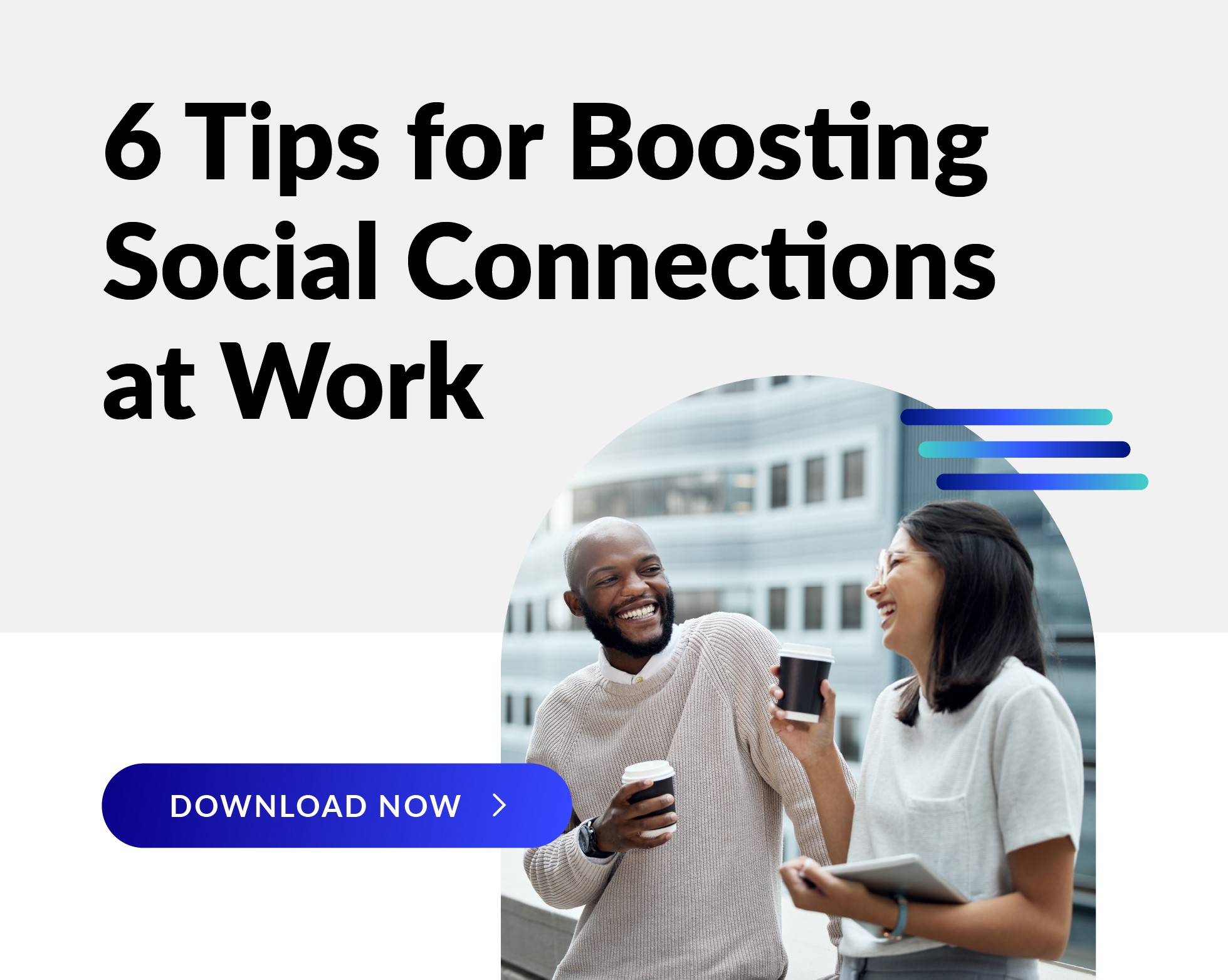 Despite the fact that all women will go through menopause at some point, there is shockingly little discussion of and support for it, especially in the workplace. WebMD Health Services recently held a webinar, in conjunction with HR Exchange Network, to start a conversation about menopause at work and share tips for how to provide working women with the support they need to be healthy and productive in this phase of life.
Despite the fact that all women will go through menopause at some point, there is shockingly little discussion of and support for it, especially in the workplace. WebMD Health Services recently held a webinar, in conjunction with HR Exchange Network, to start a conversation about menopause at work and share tips for how to provide working women with the support they need to be healthy and productive in this phase of life.
I recently had the pleasure of co-presenting our webinar, Navigating Menopause in the Workplace, with Jyoti Sharma. Jyoti is the Founder CEO/CTO of TaraCares, an AI HealthTech start-up committed to addressing unmet global health needs in menopause awareness, diagnosis, and management. She offered a wealth of information and I’m pleased to be able to share some of it in this week’s blog.
There is no universal menopause experience.
Menopause, which marks the end of a woman’s menstrual cycle, will eventually happen for all women. But, as Jyoti shared, each woman’s experience with menopause is unique, including the symptoms they experience as well as the onset of menopause. For example, the average onset of menopause in the US is 51 years old, while in India it may begin as early as a woman’s mid-40s. So, it’s important to have discussions about menopause with women of all ages, even women who are in their 20s and 30s who will benefit from learning about this life phase ahead of time.
Sadly, we also learned that women don’t always have a reliable source of information about menopause. In an informal poll we conducted during the webinar, many participants indicated that even their OB/GYNs did not provide the necessary education. This was in stark contrast to the support they received for their reproductive health.
Cultural differences affect how we view menopause.
In addition to diverse personal experiences with menopause, the way we talk about it (or don’t) and society’s view of women going through menopause can differ vastly across cultures. For example, in Japan, menopause is viewed as a “second spring,” or season of renewal and energy. In India, menopause is seen as a natural transition in a woman’s life and a rite of passage.
Contrast this with Western societies like the UK and US, where underlying social norms that prize beauty and youth have made the topic somewhat taboo. While women are celebrated for other aspects of womanhood, such as being pregnant, there is often disdain for women growing older in Western cultures.
The good news is that we are making progress in talking more about menopause. And thank goodness, because with an average life expectancy of 81 years old, women might spend a third of their lives in this stage! The UK is leading the way with the creation of menopause champion networks that foster more inclusive workplace environments for menopausal women. And I, personally, have seen so much encouraging discussion on the topic here in the US, including panel discussions, webinars, and articles in the popular press. So, there is hope on the horizon!
Menopause is a workplace issue.
As we discussed in a recent blog about menopause, in addition to being a personal issue, it’s also something that affects workplaces. A recent Mayo Clinic study found that the potential direct and indirect costs of absenteeism, lost work productivity, increased health care costs, and lost opportunities for career advancement are staggering. Additionally, menopause costs American women an estimated $1.8 billion in lost working time per year.1
Jyoti noted that menopause in the workplace is not just a women’s issue, though. Men in the workplace also need to have greater awareness and understanding of menopause—both as it relates to the women they work with, and also for how it may be impacting partners at home.
We also discussed the role that women need to play in breaking down the stigma of menopause. We had a lively discussion in the chat where several women shared how they are starting to be more candid about hot flashes they experience at work instead of sweeping them under the rug. As the saying goes, “anything that is mentionable is manageable,” so the more we talk openly about menopause the less taboo the topic will be.
What can organizations do to begin creating a more menopause friendly workplace?
Jyoti recommended to first survey women in the organization to understand how people are feeling about menopause and what type of support they are interested in.
She also shared the following ideas for what organizations can do to support menopausal women in the workplace:
- Appoint a menopause champion/specialist
- Draft a formal menopause policy for the company
- Reassess employee benefits
- Allow flexible working arrangements
- Adapt the workplace environment to support women
- Evaluate hiring and talent management practices, including tracking how many women of menopausal age leave the organization
- Enlist the support of Employee Resource Groups for women, parents, and members of different ethnic and racial groups
- Offer training on menopause; provide sessions that are appropriate for all employees, as well as sessions just for women so they can feel comfortable opening up
Health coaching can also be a great way to help women navigate menopause.
Our WebMD Health Coaches provide the guidance and support women need to understand their bodies and their changing hormones. WebMD Health Coaches focus on all areas of women’s hormonal health, including:
- Understanding the hormone cycle
- Identifying what affects hormonal health
- Determining ways to balance hormones
- Menopause symptoms management
- Tips to balance hormones
They can also assist with lifestyle changes that ease the symptoms of menopause, such as getting regular exercise, maintaining a healthy weight, reducing sugar intake, managing stress levels and focusing on quality sleep.
When organizations increase their support for women going through menopause, the benefits are numerous:
- Improved employee retention and engagement;
- Reduced absenteeism and presenteeism;
- Increased productivity;
- Better employee health;
- Improved workplace morale; and
- The ability to retain a multi-generational workforce of women.
Stay tuned for a recap of Part 2 of the Navigating Menopause in the Workplace series next week. And be sure to listen to Part 1 here. For help navigating the menopause journey for your employees, contact us at connect@webmd.net.




